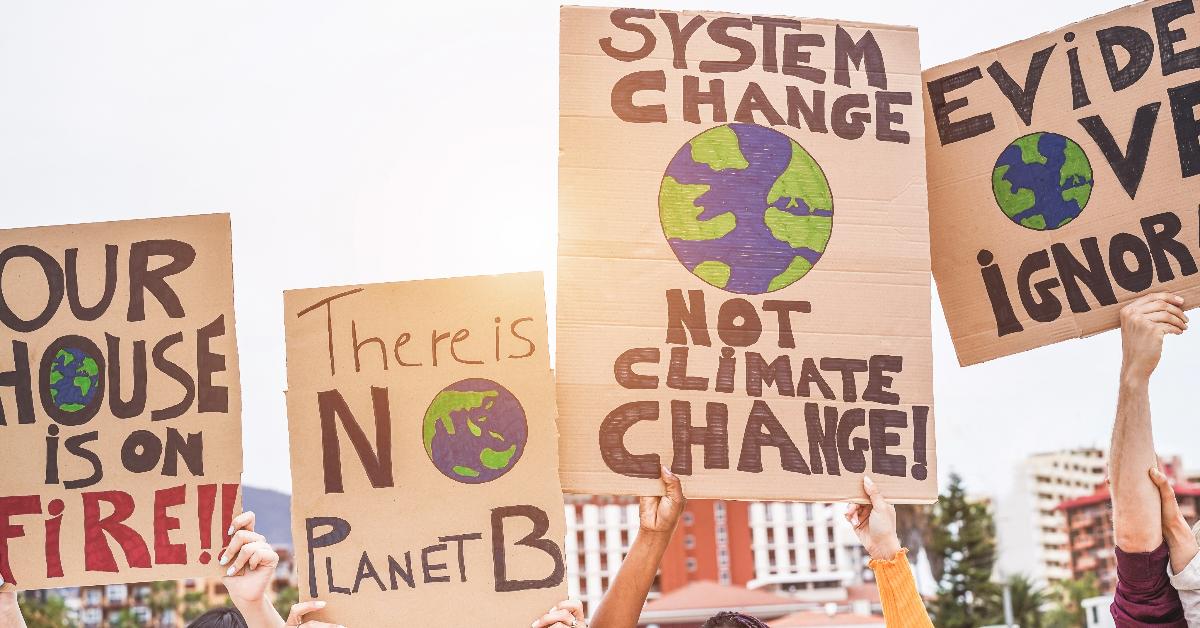
The “Climate Emergency”: Fueled by 21st Century Marxism
Europe currently faces several challenges that potentially harm the quality of life for people in general but especially for young individuals, preventing them from developing their lives autonomously and independently. The housing crisis, reflected in overcrowded accommodation affecting 28 percent of young people aged 15 to 29, is just one example.
Freedom of expression in Europe also seems more threatened than ever. Highly controlled content is removed from social platforms by those who seem to consider themselves more legitimate thinkers than the rest of us.
Young people in Europe appear to lack the freedom to grow as individuals with full freedom of expression and to even acquire property. However, there is a global phenomenon that seems more concerning and strangely urgent in the spotlight before policymakers: the climate emergency.
All these stakeholders seem to agree: We must act now! There is a deadline, and we are running out of time.
United Nations secretary-general António Guterres recently said that “the era of global warming is over” and “the era of global boiling has begun.”
One year earlier, in February 2022, this issue was a matter of life or death.
The president of the European Commission also shares this sense of permanent urgency, even stating, “More money is needed for the climate,” when questioned about legislation aimed at “taxing excessive profits” of energy-producing companies. This concept of “excessive profits” seems to bring something else to mind.
Political power has the characteristic that, if politicians have a very short time preference, those in power want to keep their power.
Even though human action may be only one of the factors to consider when talking about climate change, it does not seem to be wise to address this issue without the interest in increasing this media wheel of fear. If there is fear, there is receptivity to accepting measures that generally restrict individual freedom to achieve “salvation.”
At the European or global level, the truth is the same: there is no public money. There is money taken from taxpayers who have no say in its destination. In 2021, in the European Union, the share of environmentally relevant taxes in total tax and social contributions revenue was 5.5 percent.
If we look at some of the goals set by the European Green Deal, we can see that they can hardly be implemented without consequences for an increase in prices for consumers, as these goals impose restrictions and stiff requirements at various levels in the economic sectors. The taxpayers continue to pay and, even though it is never enough, the warnings persist: “the end is near.”
Suddenly, “young people” feel “climate anxiety”—a new condition that apparently absolves them of any responsibility and justifies everything, including attacks on the physical integrity of others, attacks on the freedom of movement, violence, attacks on property, and basically any assault on people and properties. The goal of these young people is clear and transcends mere concern for our “common home”: anti-capitalism. These “activists,” who clearly have the privilege of not feeling the practical financial consequences of the policies they advocate, are also anti-capitalists.
“Climate activists” openly want to impose a society model without consumption and without freedom (for others), where environmental concern is just a mask that hides the truth about this model, which is Marxism. This model ignores the fact that only humans with capital and technology can evolve toward solutions aimed at conservation and sustainability.
However, this was never about conservation, environmentalism, or sustainability. It’s about power and the imposition of “a new model of society”—without consumption, without possessions, without classes, without law. It strongly resembles Marxism.


